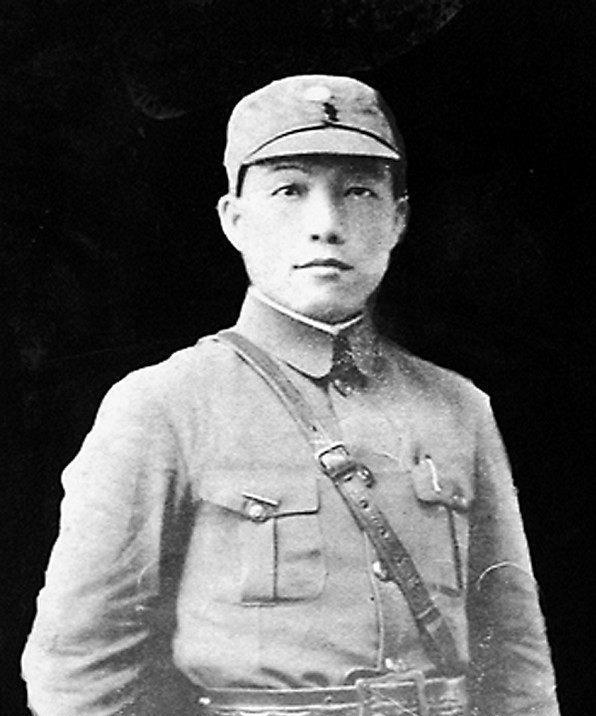Li Yutang (February 7, 1899 – February 5, 1951), courtesy name Yaojie, was a Native of Guangrao County, Shandong Province, A Member of the Whampoa Military Academy, a Chinese general in the War of Resistance Against Japanese Aggression and a lieutenant general in the Republic of China Army. Together with Li Yannian, Li Xianzhou, and Wang Yaowu, they are known as the Three Li and One King. He was born on March 16, 1899 (the fifth day of the first month of February in the 25th year of the Qing Dynasty) to a landlord family in Dawangqiao Hexi, Guangrao County, Shandong Province. In 1924, Li Yutang was admitted to the first phase of the Whampoa Military Academy.

After graduation, he was assigned to the Second Regiment of the First Division of the National Revolutionary Army as a probationary officer, and because of his bravery in battle, he was successively promoted to platoon commander, company commander, battalion commander, regiment commander, brigade commander, and division commander. After the outbreak of the Anti-Japanese War, Li Yutang, as Chiang Kai-shek's Huangpu faction, made many military achievements, and was promoted to the commander of the 8th Army on June 8, 1938, belonging to a group of people who were the earliest to be promoted to commander in huangpu. In 1939, he led his troops to block the Japanese army at Coffin Mountain near Wuning, held the position to the ground, and the whole army made battle merits, and the Kuomintang Anti-Japanese War Headquarters awarded Li Yutang the title of "Taishan Army". Soon, the department was reorganized into the Tenth Army, and Li remained the commander of the army and was ordered to garrison Changsha
After that, Li Yutang successively served as deputy commander-in-chief and commander-in-chief of the Twenty-seventh Group Army, commander-in-chief of the Tenth Appeasement District, deputy commander-in-chief of Hainan Defense, commander of the First Route Army, and commander of the Thirty-second Army. During his stay in Hainan, the CCP plotted against Li Yutang through relations, and Li accepted the Communist Party's conditions to hold an uprising. Due to the interruption of transportation, Li Yutang failed to receive the instructions of the Chinese Communists on the uprising in time, the People's Liberation Army had occupied Hainan Island, and Li Yutang withdrew to Taiwan with the Kuomintang troops. Later, due to betrayal by traitors, Li Yutang was killed by the Kuomintang authorities in Bitan, Taipei on February 5, 1951.
In 1939, li Yutang's 8th Army was awarded the honorary title of "Taishan Army" for its outstanding achievements in the Battle of Nanxun In the Battle of Wuhan. Soon after, the 8th Army was reorganized into the 10th Army, and Li Yutang continued to serve as the commander. In the eight-year War of Resistance Against Japanese Aggression, the 10th Army and the 74th Army were on a par with each other, and they fought many hard and vicious battles, although they were not among the five ace armies, but no matter how strong they were, they were not under the five ace armies.
However, in Changsha in 1939, the main force of the Japanese 3rd Division, the 6th Division and the 40th Division each attacked fiercely, and after two days and nights of fierce fighting, the 10th Army's Fulinpu and Jinjing positions were successively broken through, the 3rd Division suffered heavy losses, and Lai Chuanxiang, deputy commander of the 190th Division, was martyred. Li Yutang was forced to abandon his position and lead his troops to retreat to the city of Luoli, south of the Laodao River, to take care of and rectify. Subsequently, the 10th Army was deployed on the outskirts of Changsha on the dongshan, Liuyang River, and Laodao River lines, taking advantage of geographical advantages to block the Japanese army for four days and nights, and finally insisted on reinforcements to repel the Japanese army. After the war, the theater commander's headquarters held Jinjing responsible for its loss, and Li Yutang was dismissed from his post.
After Chiang Kai-shek's defeat in Taiwan, Li Yutang followed suit, but because his wife was suspected of being a communist, she was arrested by the Secrecy Bureau. I heard that Chiang Kai-shek wrote only one word on Li Yutang's judgment book: "Shame." ”
On February 5, 1951, Li Yutang and his wife Chen Bolan were executed by firing squad. Before his death, Li Yutang left a suicide note to his brother, in which he wrote: "The president's instructions have no complaints, and there is public opinion behind me. I have nothing to do with the state, and what good does it do to the country that the state treats me like this? I lack pity, but I have been a country all my life, so I am unwilling to end up like this! ”